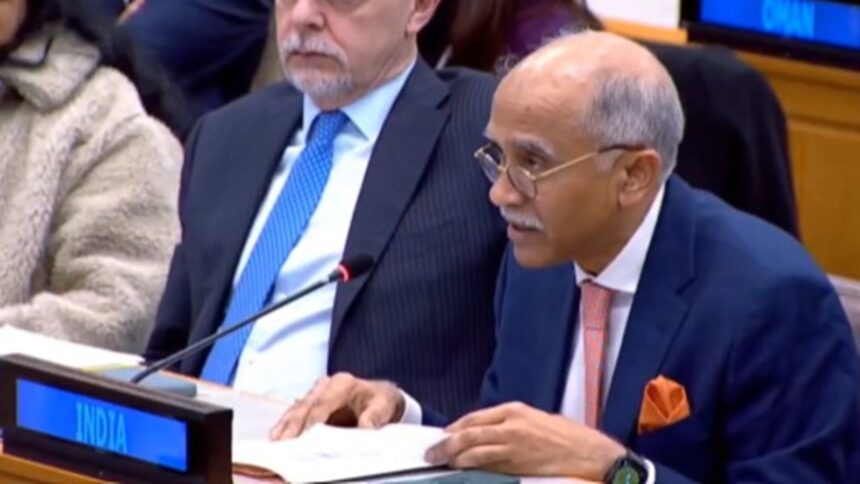Over a week after Pakistan signalled its willingness to discuss New Delhi’s concerns about the Indus Water Treaty, India, at the United Nations, reiterated its stance at suspending the treaty with the neighbouring country, saying it was constrained to respond to the disinformation carried out by the delegation of the neighbouring country.
Referring to Pakistan as a global epicenter of terror, India said the treaty will remain in abeyance until the neighbouring country “credibly and irrevocably ends its support for cross-border terrorism.”
Speaking at the Arria Formula meeting on Protecting Water in Armed Conflict – Protecting Civilian Lives, the Permanent Representative of India at the UN, Ambassador Parvathaneni Harish said, “India has always acted in a responsible manner as an upper-riparian state. I would like to highlight four aspects to expose the disinformation of Pakistan.”
Describing the aspects, Harish said: “First, India entered into the Indus Water Treaty 65 years ago in good faith. The preamble of the treaty describes that the treaty was concluded in a spirit of goodwill and friendship. Throughout these six and a half decades, Pakistan has violated the spirit of the treaty by inflicting three wars and thousands of terror attacks on India. In the last four decades, more than 20,000 Indian lives have been lost in terror attacks, the most recent of which was a dastardly targeted terror attack on tourists in Pahalgam last month. India has shown extraordinary patience and magnanimity throughout this period. Pakistan’s state-sponsored cross-border terrorism in India seeks to hold hostage the lives of civilians, religious harmony, and economic prosperity.”
India also highlighted Pakistan’s consistent blockage of changes to the infrastructure and modifications of its provisions permissible under the treaty in the past years. Harish said, “Second, in these 65 years, far-reaching fundamental changes have taken place not only in terms of escalating security concerns through cross-border terror attacks, but also growing requirements for producing clean energy, climate change and demographic change. Technology for dam infrastructure has transformed to ensure safety and efficiency of operations and water use. Some of the old dams are facing serious safety concerns. However, Pakistan has continued to block consistently any changes to this infrastructure and any modifications of the provisions which is permissible under the treaty. In fact, in 2012, terrorists even attacked the Tulbul navigation project in and Kashmir. These cynical acts continue to endanger safety of our projects and lives of civilians.”
Third, Harish stated, “India has formally asked Pakistan to discuss the modifications of the treaty on several occasions in the past two years. However, Pakistan continues to reject these and Pakistan’s obstructionist approach continues to prevent the exercise of full utilization of the legitimate rights by India.”
Earlier, in January 2023 and again in September 2024, India had sent notices to the neighbouring country requesting a “review and modification” of the IWT, however, Pakistan had not expressed its explicit willingness. It is only after India placed the treaty in abeyance with immediate effect after the April 22 terrorist attack in Pahalgam, that Pakistan seems to have signalled its willingness.
India asserted that the abeyance will continue to stay in place until Pakistan irrevocably ends its support to cross-border terrorism. “Four, it is against this backdrop that India has finally announced that the treaty will be in abeyance until Pakistan, which is a global epicenter of terror, credibly and irrevocably ends its support for cross-border terrorism. It is clear that it is Pakistan which remains in violation of the Indus Water Treaty. Thank you, Mr. President,” he concluded.
India’s firm stance comes after Pakistan’s Water Resources Secretary, Syed Ali Murtaza, recently responded to India’s formal intimation of the Union Cabinet’s decision to keep the treaty in abeyance, and offered to, on behalf of his government, discuss the specific terms India objects to.








